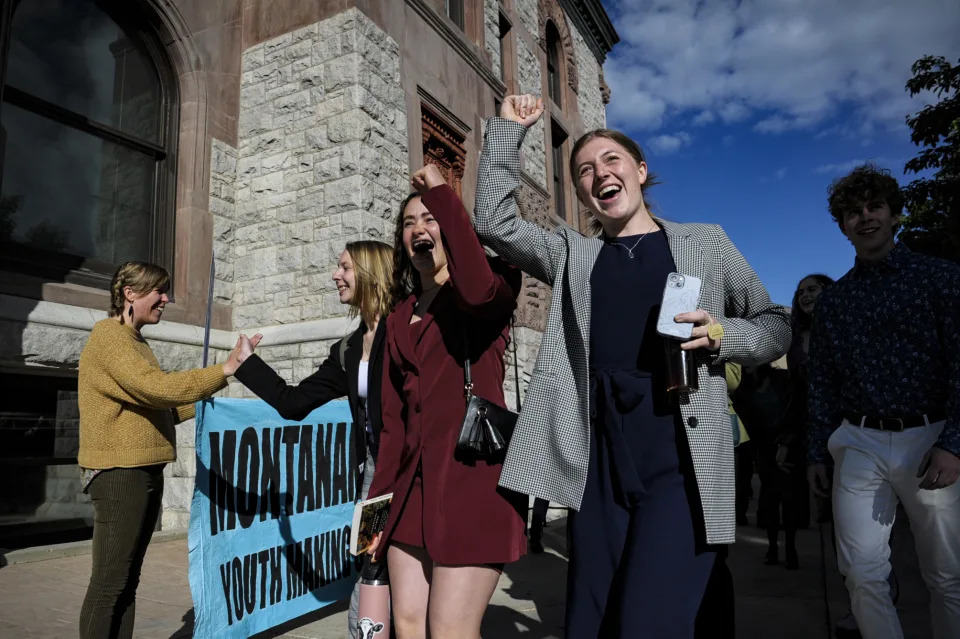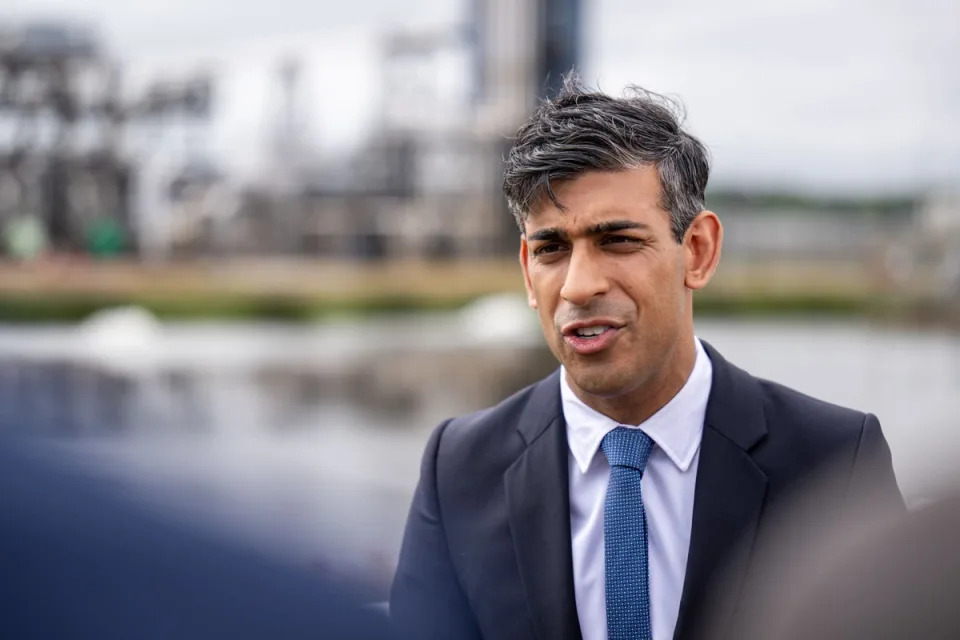AMY BETH HANSON and MATTHEW BROWN
Updated Mon, August 14, 2023


Lead plaintiff Rikki Held listens to testimony during a hearing in the climate change lawsuit, Held vs. Montana, at the Lewis and Clark County Courthouse on, June 20, 2023, in Helena, Mont. A Montana judge on Monday, Aug. 14, sided with young environmental activists who said state agencies were violating their constitutional right to a clean and healthful environment by permitting fossil fuel development without considering its effect on the climate.
HELENA, Mont. (AP) — A Montana judge on Monday sided with young environmental activists who said state agencies were violating their constitutional right t o a clean and healthful environment by permitting fossil fuel development without considering its effect on the climate.
The ruling following a first-of-its- kind trial in the U.S. adds to a small number of legal decisions around the world that have established a government duty to protect citizens from climate change.
District Court Judge Kathy Seeley found the policy the state uses in evaluating requests for fossil fuel permits — which does not allow agencies to evaluate the effects of greenhouse gas emissions — is unconstitutional.
Judge Seeley wrote in the ruling that “Montana’s emissions and climate change have been proven to be a substantial factor in causing climate impacts to Montana’s environment and harm and injury” to the youth.
However, it’s up to the state Legislature to determine how to bring the policy into compliance. That leaves slim chances for immediate change in a fossil fuel-friendly state where Republicans dominate the statehouse.
Julia Olson, an attorney representing the youth, released a statement calling the ruling a “huge win for Montana, for youth, for democracy, and for our climate.”
“As fires rage in the West, fueled by fossil fuel pollution, today’s ruling in Montana is a game-changer that marks a turning point in this generation’s efforts to save the planet from the devastating effects of human-caused climate chaos,” said Olson, the executive director of Our Children's Trust, an Oregon environmental group that has filed similar lawsuits in every state since 2011.
Emily Flower, spokesperson for Montana Attorney General Austin Knudsen, decried the ruling as “absurd” and said the office planned to appeal. She criticized Seeley for allowing the plaintiffs to put on what Flower called a “taxpayer-funded publicity stunt.”
“Montanans can’t be blamed for changing the climate," Flower said in an email. "Their same legal theory has been thrown out of federal court and courts in more than a dozen states. It should have been here as well, but they found an ideological judge who bent over backward to allow the case to move forward and earn herself a spot in their next documentary.”
Attorneys for the 16 plaintiffs, ranging in age from 5 to 22, presented evidence during the two-week trial in June that increasing carbon dioxide emissions are driving hotter temperatures, more drought and wildfires and decreased snowpack.
The plaintiffs said those changes were harming their mental and physical health, with wildfire smoke choking the air they breathe and drought drying out rivers that sustain agriculture, fish, wildlife and recreation. Native Americans testifying for the plaintiffs said climate change affects their ceremonies and traditional food sources.
“I know that climate change is a global issue, but Montana needs to take responsibility for our part,” lead plaintiff Rikki Held, 22, testified during the trial. “You can’t just blow it off and do nothing about it.”
The state argued that even if Montana completely stopped producing C02, it would have no effect on a global scale because states and countries around the world contribute to the amount of C02 in the atmosphere. A remedy has to offer relief, the state said, or it’s not a remedy at all.
But Seeley said the state's attorneys failed to give a compelling reason for why they were not evaluating greenhouse gas impacts. She rejected the notion that Montana’s greenhouse gas emissions are insignificant and noted that renewable power is “technically feasible and economically beneficial," citing testimony from the trial indicating Montana could replace 80% of existing fossil fuel energy by 2030.
“Every additional ton of GHG (greenhouse gas) emissions exacerbates plaintiffs’ injuries and risks locking in irreversible climate injuries,” she wrote.
State officials tried to derail the case and prevent it from going to trial through numerous motions to dismiss the lawsuit. Seeley rejected those attempts.
Since its founding, Our Children's Trust has raised more than $20 million to press its lawsuits in state and federal court. No previous attempts reached trial.
Carbon dioxide, which is released when fossil fuels are burned, traps heat in the atmosphere and is largely responsible for the warming of the climate. This spring, carbon dioxide levels in the air reached the highest levels they’ve been in over 4 million years, the National Oceanic Atmospheric Administration said earlier this month.
Greenhouse gas emissions also reached a record high last year, according to the International Energy Agency.
July was the hottest month on record globally and likely the warmest that human civilization has seen, according to scientists.



















